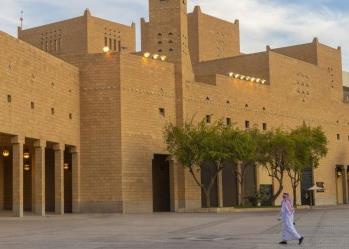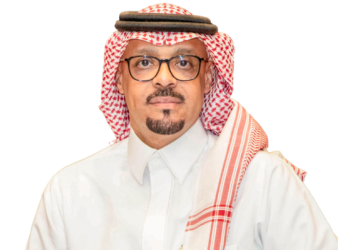
President and chief executive officer of Turkey’s TAV Group, Mustafa Seni Sener, has concrete plans for the construction and airports divisions of his company
It is going to be a busy summer for Turkey’s TAV Group. As one of the prequalified groups planning to bid for the midfield terminal deal in Abu Dhabi, it is preparing to finalise its bid for the 11 September deadline.
TAV is already carrying out pile caps and foundation work at the site and depending on price, will be in a good position to win the contract. If its bid is successful, it will be the latest chapter in an eventful year for the company.
TAV Group has two divisions: a building firm, TAV Construction; and TAV Airports Holding, a listed company and global operator of 10 airports. TAV Airport’s concessions include Istanbul’s Ataturk International airport, Tbilisi and Batumi in Georgia, Skopje and Ohrid in Macedonia and Enfidha and Monastir in Tunisia.
At the helm of the business is president and chief executive officer Mustafa Seni Sener.
“Because of the uprising in Tunisia, there has been a decrease in passenger numbers in Tunisia, but stability is coming back and still Europeans are coming to Tunisia. I am sure the same thing will happen in Tripoli,” says Sener.
For the construction division, the Arab uprisings have had more of an impact. In Libya, TAV staff were evacuated from projects at Tripoli and Sebha International airports, where they were carrying out expansion work. In light of this, Sener could be forgiven for being downhearted about business. If anything, the opposite is true.
Libya’s return to stability
When stability does return to Libya, TAV is optimistic it will resume work on its projects in Tripoli with its partners Athens-based Consolidated Contractors Company (CCC) and Brazil’s Oderbrecht; and in Sebha, again with CCC.
“These countries have to open their economies to the world. These revolutions are a result of globalisation. The governments of those countries did not open their countries to the world economy and now they will. We are waiting for stability to return and we can continue to construct our airport projects there,” he says.
Globalisation made available the transfer of capital and technology, but … cannot make the transfer of cultures
Sener has a clear vision of where the two divisions of his firm will go in the future. The plan for TAV Construction is to pursue engineering, procurement and construction (EPC) projects, while TAV Airports will focus on winning work on a public-private partnership (PPP) basis.
With political uprisings continuing across North Africa, TAV is currently concentrating on high-profile bids in the more stable Gulf, such as Abu Dhabi’s midfield terminal and the Medina airport expansion in Saudi Arabia.
For PPP projects, there is no bigger project than the Medina deal. The Gulf’s first airport to be developed on a PPP basis, Medina will be a prototype for the rest of the kingdom’s airports pencilled in for rehabilitation or expansion.
Bids went in for the contract to develop the airport on 5 June with an award expected later in 2011. Such is the interest and importance of the Medina airport project, the bid documents alone weighed three tonnes.
“Concerning Medina, construction is not the important part. The important part is the other 20 years in which you operate the airport. As a Turkish firm, we have an advantage compared with European companies,” say Sener. “Globalisation made available the transfer of capital and transfer of technology, but globalisation cannot make the transfer of cultures. You can only articulate cultures and, being Turkish company, we have the ability to integrate the culture. This regional commonality and similarity is helping us a lot. If you are going to stay in a country, for example, Saudi Arabia, for 20-25 years, you have to be close to that culture,” Sener says.
“Other airports in the GCC are oil rich, so they are doing EPC, which I appreciate. Rich countries don’t go for PPP. But we are supporting Saudi Arabia’s Medina PPP [because it] doesn’t need money, but it needs operation,” he adds.
Any new work TAV secures will join the airport projects already under way. TAV Construction is working on the terminal building at the New Doha International airport in partnership with Japan’s Taisei Corporation. It is also working with partner CCC on the development of the airfield site for the expansion of Muscat International airport in Oman including runways and infrastructure.
New industries
These projects mean the region is important for TAV Construction. Sener says 88 per cent of its revenues come from the Middle East and North Africa region – 68 per cent from Middle East and 20 per cent from North Africa.
TAV is not looking to enter new industries, as it is busy enough with existing operations that could be rolled out in the Middle East. Aside from its airports and construction activities, it also has ground-handling firms: Havas TGS with Turkish Airlines, and North Hub at Riga, Helsinki and Tallinn. It is also partners with Air Baltic and is in the duty-free business at Istanbul airport, partnering with Germany’s Heinemann.
“We do not need to go to other industries, but we have diversification in the aviation business. Emerging markets are our target. [We are in] North Africa- Tunisia, Libya, we already built Cairo [airport], so we have experience in North Africa and we are planning to carry this experience to Africa. Pan-African Fund is our partner and through them we have the ability to go in Africa and get projects,” Sener says.
You might also like...

Saudi Arabia seeks K9 PPP project interest
25 April 2024

Kuwait reviews 1.1GW solar prequalifications
25 April 2024

LIVE WEBINAR: Abu Dhabi Oil & Gas 2024
25 April 2024

Qiddiya tenders site office package
25 April 2024
A MEED Subscription...
Subscribe or upgrade your current MEED.com package to support your strategic planning with the MENA region’s best source of business information. Proceed to our online shop below to find out more about the features in each package.








